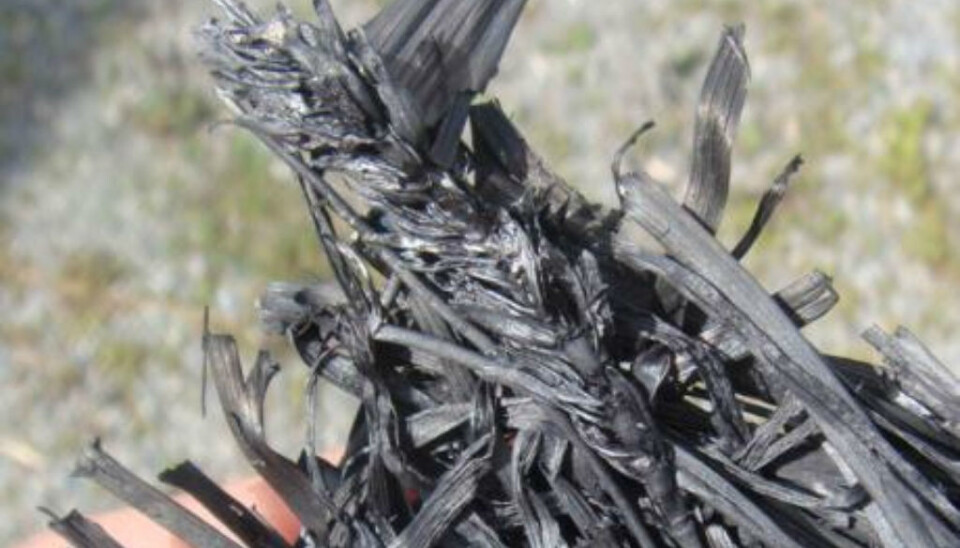This article was produced and financed by Norwegian Institute for Agricultural and Environmental Research

Biochar reduces heavy metal uptake in plants
New study reveals that biochar has the ability to reduce plants’ uptake of heavy metals, especially from highly contaminated soil.
Denne artikkelen er over ti år gammel og kan inneholde utdatert informasjon.
Biochar, a material with similar qualities to those of charcoal, is known for being highly efficient for storing carbon in soil.
But the story doesn't end there.
Researchers at Bioforsk, the Norwegian Institute for Agricultural and Environmental Research, wanted to find out what effect biochar has on plants’ uptake of heavy metals from soil.
The experiment was conducted using barley, planted in three different types of soil with varying degrees of heavy metal contamination.
Best effect in heavily contaminated soil
In the heavily contaminated soil with biochar added to it, the researchers measured an 87 percent uptake reduction of the heavy metal cadmium in comparison to the cadmium uptake of the barley that grew in the same soil with no biochar.
“Not surprisingly, we observed that the plants planted in soil containing large amounts of heavy metals had limited growth compared to the plants planted in less contaminated soil,” says senior researcher Erik Joner at Bioforsk.
“We also discovered that the plants’ uptake of heavy metals was substantially reduced in soil which contained two percent biochar,” he says.
This was particularly the case for the uptake of lead and cadmium, but Joner and his colleagues found a significant reduction in the uptake of other heavy metals as well.
Many advantages to biochar
There are many other advantages to biochar than those concerning carbon storage and the reduction of heavy metal uptake in plants. Research on biochar has shown that the material adds important plant nutrients to soil, it increases the pH of the soil and also improves the soil’s ability to store water and nutrients.
In addition, biochar darkens the colour of soil, so that it warms more quickly in spring.
Should no longer be ignored
So why isn’t biochar utilised to a larger extent than it is today? Erik Joner says there are several reasons for this.
“The main problem is that there is a lack of pyrolysis facilities for biochar production, and the incentives to motivate farmers to make use of the material are also insufficient,” he says.
Put in other words, farmers today receive no financial compensation for binding carbon by adding biochar to their soil. Then few choose to do so.
“In the future, we should work towards reduced emissions by utilising biochar to a larger extent. This can be achieved by increasing the number of production plants, and also by introducing green certificates for farmers who bind carbon in this way,” Joner says.
“Biochar as a material has too many advantages for it to be ignored any longer,” he adds.
An article with the full research results from the study is to be published in an upcoming edition of Plant and Soil. The title of the article is: Effects of soil amendment with biochar on sequestration of heavy metals in three soils assessed by plant uptake and soil extractions.






























